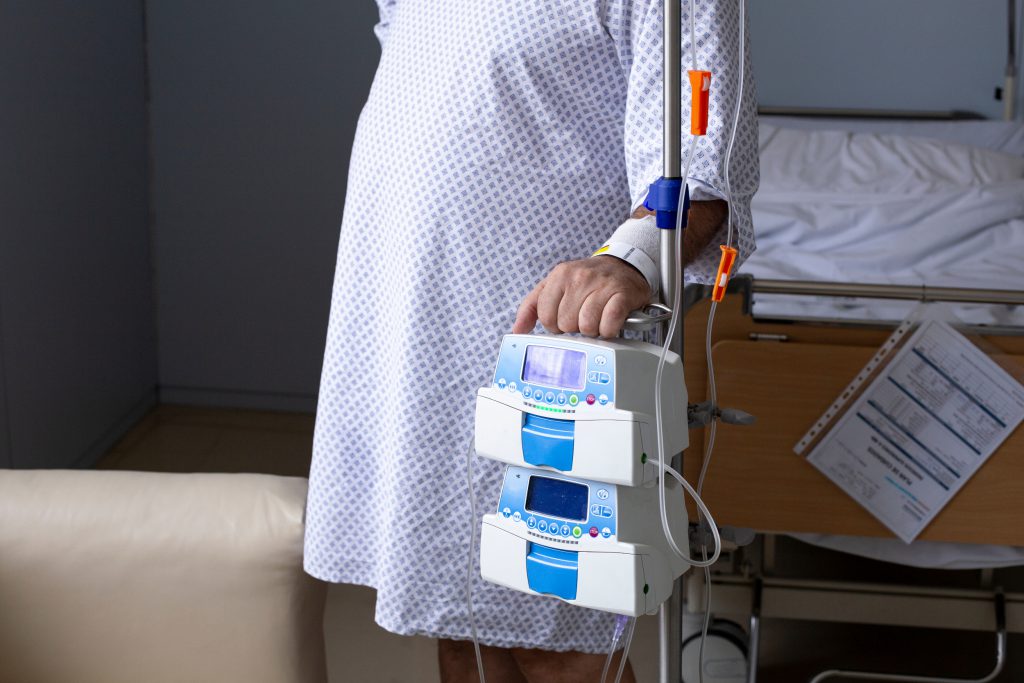Weight loss surgery, also called bariatric surgery, is an option for individuals who are overweight or obese and have struggled to lose weight on their own. It can be a pathway to managing weight and reducing the risk of obesity-related health conditions, such as heart disease, stroke, infertility, sleep apnea, and type 2 diabetes.
Bariatric surgery, such as gastric sleeve surgery, works by changing the way your digestive system handles food, specifically by reducing your caloric intake. It does this by limiting the amount of food that your stomach can hold. Gastric bypass surgery goes a step further by bypassing or shortening the small intestine, decreasing the amount of calories and nutrients your body absorbs from the foods you eat.
If you’re considering weight loss surgery, you’ll likely meet with different healthcare providers to discuss which surgery (if any) is best for your specific situation. Here, we go into why you may choose bariatric surgery, what your options are, and how to choose which procedure is right for you.
When should you consider weight loss surgery?
No matter which type of bariatric surgery you’re considering, you’ll need to meet specific medical guidelines. To qualify for weight loss surgery, you’ll need to fit into one of the following groups: either you have a BMI of 40 or higher OR you have a BMI of 35 or higher and at least one obesity-related health condition. In both cases, you must have tried and failed to lose weight on your own through diet and exercise.
If you’re considering bariatric surgery, your primary care physician may recommend talking with bariatric, nutritional, and mental health specialists to help prepare you for the procedure. They will be able to talk to you about the benefits and risks of the different types of weight loss surgery, as well as go over the lifestyle changes you should be willing to make after your procedure. Once you are physically and mentally ready, it’s time for you to decide which type of bariatric surgery is right for you.
What are the different types of weight loss surgery?
The three most common weight loss surgeries performed in the United States are gastric sleeve, gastric bypass, and adjustable gastric band. Each of these options alters your stomach in a different way, and each comes with their own benefits and potential complications.
Gastric sleeve surgery
Gastric sleeve, also called sleeve gastrectomy, is the most common weight loss surgery in the United States. During this procedure, a surgeon removes a large part of your stomach. The remaining stomach is about the size and shape of a banana. This surgery aids in weight loss by reducing the amount of food that the stomach can hold, making you feel full more quickly. Your new, smaller stomach may also produce less “appetite” hormones, which may decrease how often you feel hungry.
Pros of gastric sleeve surgery:
- Typically leads to greater weight loss than the adjustable gastric band
- Doesn’t place any foreign objects in your body (unlike gastric band)
- Doesn’t make any changes to your intestines (unlike gastric bypass)
- Can either be performed as an outpatient procedure or an inpatient procedure with a short hospital stay
- Shorter surgery time than gastric bypass
- Lower risk of surgery-related problems than gastric bypass
Cons of gastric sleeve surgery:
- Cannot be reversed because a part of your stomach is permanently removed (unlike gastric band and gastric bypass)
- Higher risk of surgery-related problems than adjustable gastric band
- Risk of nutrient deficiency post-surgery
- Risk of hiatal hernia and acid reflux after surgery
Gastric bypass surgery
In gastric bypass, also called Roux-en-Y gastric bypass, a surgeon creates a small pouch in the top of the stomach. This pouch is the only part of your stomach that can hold food, which helps you feel full faster. Then, the surgeon cuts the small intestine and attaches it to the small pouch, allowing the food you eat to bypass part of the small intestine. This decreases the calories and nutrients your body absorbs from the food you eat.
Pros of gastric bypass surgery:
- Can lead to greater weight loss than gastric band and gastric sleeve
- Doesn’t place any foreign objects in your body (unlike gastric band)
Cons of gastric bypass surgery:
- Difficult to reverse
- Higher chance of nutrient shortage than other weight loss surgeries
- More complex surgery with a higher risk of complications than other weight loss procedures
- May cause you to feel sick after eating or drinking, especially sweets (called “dumping syndrome”)
Adjustable gastric band
An adjustable gastric band, also called a lap band, is a small silicone band that’s looped around the top of the stomach to create a small pouch. This limits the amount of food you can eat before you start feeling full. The band can be adjusted after the surgery to help you achieve a healthy rate of weight loss.
Pros of gastric band surgery:
- The band can be adjusted and removed after surgery
- Can be performed as an outpatient surgery
- Doesn’t surgically alter your stomach or digestive tract
Cons of gastric band surgery:
- Typically leads to less weight loss than other bariatric surgery options
- Requires frequent follow-up visits to adjust the band, which can increase the total cost you pay for your weight loss procedure
- It’s possible for your body to reject the band
- Removing the band requires another surgery
- Risk of the band slipping or damaging the stomach over time
Duodenal switch (DS) and loop duodenal switch (SADI)
Duodenal switch surgery involves removing a large portion of your stomach, similar to gastric sleeve surgery. However, the surgery doesn’t stop there. Next, the surgeon disconnects your stomach from your small intestine and reattaches it further down.
In traditional duodenal switch surgery, the stomach and small intestine are severed and reattached at two different points. Loop duodenal switch is less complex. It only involves one separation and reconnection. Both surgeries cause weight loss by limiting how much you can eat and decreasing the amount of nutrients your body can absorb from food.
Pros of duodenal switch surgery:
- Can lead to greater weight loss than most other bariatric surgeries
- Doesn’t place any foreign objects in your body (unlike gastric band)
- Unlike gastric bypass, DS rarely causes dumping syndrome
- Potential for total remission of Type 2 diabetes
Cons of duodenal switch surgery:
- Cannot be reversed
- Higher chance of malnutrition than other weight loss procedures, especially for traditional DS
- More complex surgery with a higher risk of complications than other bariatric surgeries
How should you decide which weight loss surgery is best for you?
Choosing between the three main types of weight loss surgery isn’t always easy. When you’re talking to your doctor about your options, asking them the following questions may help make your decision a little easier:
- How invasive is each type of bariatric surgery?
- What will my recovery from weight loss surgery be like?
- Which procedure will have the biggest effect on my lifestyle post-surgery?
- Are there any safety concerns I should know about?
- Do I have any health conditions that should be addressed before I get the surgery?
- Will my current weight or body type affect which type of bariatric surgery is safest? Will it affect your recommendations?
- What are the risks and implications associated with each surgery? How common are they?
Ultimately, the weight loss surgery you choose will depend on your current weight and overall health, as well as your weight loss goals for the future. No matter which procedure you choose, you should prioritize two things: working with an experienced surgeon and paying a fair price. By working with top healthcare facilities to negotiate cash pay discounts and financing options, New Choice Health’s Bariatric Surgery Assist program can help you do both.







